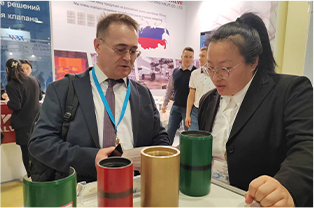- Afrikaans
- Albanian
- Amharic
- Arabic
- Armenian
- Azerbaijani
- Basque
- Belarusian
- Bengali
- Bosnian
- Bulgarian
- Catalan
- Cebuano
- Corsican
- Croatian
- Czech
- Danish
- Dutch
- English
- Esperanto
- Estonian
- Finnish
- French
- Frisian
- Galician
- Georgian
- German
- Greek
- Gujarati
- Haitian Creole
- hausa
- hawaiian
- Hebrew
- Hindi
- Miao
- Hungarian
- Icelandic
- igbo
- Indonesian
- irish
- Italian
- Japanese
- Javanese
- Kannada
- kazakh
- Khmer
- Rwandese
- Korean
- Kurdish
- Kyrgyz
- Lao
- Latin
- Latvian
- Lithuanian
- Luxembourgish
- Macedonian
- Malgashi
- Malay
- Malayalam
- Maltese
- Maori
- Marathi
- Mongolian
- Myanmar
- Nepali
- Norwegian
- Norwegian
- Occitan
- Pashto
- Persian
- Polish
- Portuguese
- Punjabi
- Romanian
- Russian
- Samoan
- Scottish Gaelic
- Serbian
- Sesotho
- Shona
- Sindhi
- Sinhala
- Slovak
- Slovenian
- Somali
- Spanish
- Sundanese
- Swahili
- Swedish
- Tagalog
- Tajik
- Tamil
- Tatar
- Telugu
- Thai
- Turkish
- Turkmen
- Ukrainian
- Urdu
- Uighur
- Uzbek
- Vietnamese
- Welsh
- Bantu
- Yiddish
- Yoruba
- Zulu
API 5CT Tubing Coupling - High-Quality Oil and Gas Tubing Solutions
Understanding API 5CT Tubing Coupling
API 5CT is a comprehensive standard for the specification of steel pipes used in the oil and gas industry, particularly for casing and tubing. Among the critical components of this system is the tubing coupling, which plays a vital role in connecting lengths of tubing together to form a continuous string that can be drilled into the ground to extract hydrocarbons. This article explores the significance, types, and manufacturing aspects of API 5CT tubing couplings.
What is API 5CT Tubing Coupling?
A tubing coupling is a short piece of pipe with threads on both ends, designed to connect two sections of tubing. This connection is crucial as it ensures the integrity of the tubing string, enabling it to withstand the harsh conditions of oil and gas extraction. API 5CT specifications help ensure that these couplings meet certain standards of quality, strength, and durability.
These couplings are often subject to high pressures and extreme temperatures, making it essential that they are built to precise specifications. API 5CT defines various grades of steel, along with the minimum yield strengths and other properties, ensuring that the couplings can handle the mechanical demands of downhole operations.
Types of API 5CT Tubing Couplings
API 5CT recognizes several types of tubing couplings based on their connection methods and material grades. Two of the most common connection types are
api 5ct tubing coupling

1. Regular Couplings These are the standard type of couplings that connect two lengths of tubing directly. They have a specific thread profile that ensures a tight seal, preventing leaks in the system. 2. Flush Couplings Designed to minimize the inner diameter, flush couplings help reduce flow restrictions, allowing for higher production rates. This design feature is particularly advantageous in horizontal and extended-reach drilling applications.
Additionally, the couplings can be categorized based on their grades, such as H40, J55, K55, N80, L80, C90, T95, and P110. Each grade provides different levels of strength and resistance to corrosion, catering to various operational environments and challenges.
Manufacturing of API 5CT Tubing Couplings
Manufacturing API 5CT tubing couplings involves several critical processes to ensure they meet the high standards set by the American Petroleum Institute. The typical process begins with selecting the appropriate grade of steel, followed by heat treatment to achieve the desired mechanical properties.
After forging and machining the couplings to the required dimensions, a meticulous inspection process follows. This includes non-destructive testing methods to identify any internal flaws that could compromise the integrity of the couplings under pressure. Finally, the couplings are threaded per API specifications, ensuring compatibility with the tubing they will be mated with.
Conclusion
API 5CT tubing couplings are essential components of the oil and gas extraction process. Understanding their specifications, types, and manufacturing processes is crucial for professionals in the industry. By adhering to API standards, manufacturers ensure that these couplings provide the necessary strength and reliability in demanding environments, facilitating the safe and efficient extraction of valuable resources. As the industry continues to evolve, innovations in materials and manufacturing techniques may further enhance the performance and durability of API 5CT tubing couplings, meeting the ever-increasing demands of oil and gas operations.
-
Tubing Pup Joints: Essential Components for Oil and Gas OperationsNewsJul.10,2025
-
Pup Joints: Essential Components for Reliable Drilling OperationsNewsJul.10,2025
-
Pipe Couplings: Connecting Your World EfficientlyNewsJul.10,2025
-
Mastering Oilfield Operations with Quality Tubing and CasingNewsJul.10,2025
-
High-Quality Casing Couplings for Every NeedNewsJul.10,2025
-
Boost Your Drilling Efficiency with Premium Crossover Tools & Seating NipplesNewsJul.10,2025







